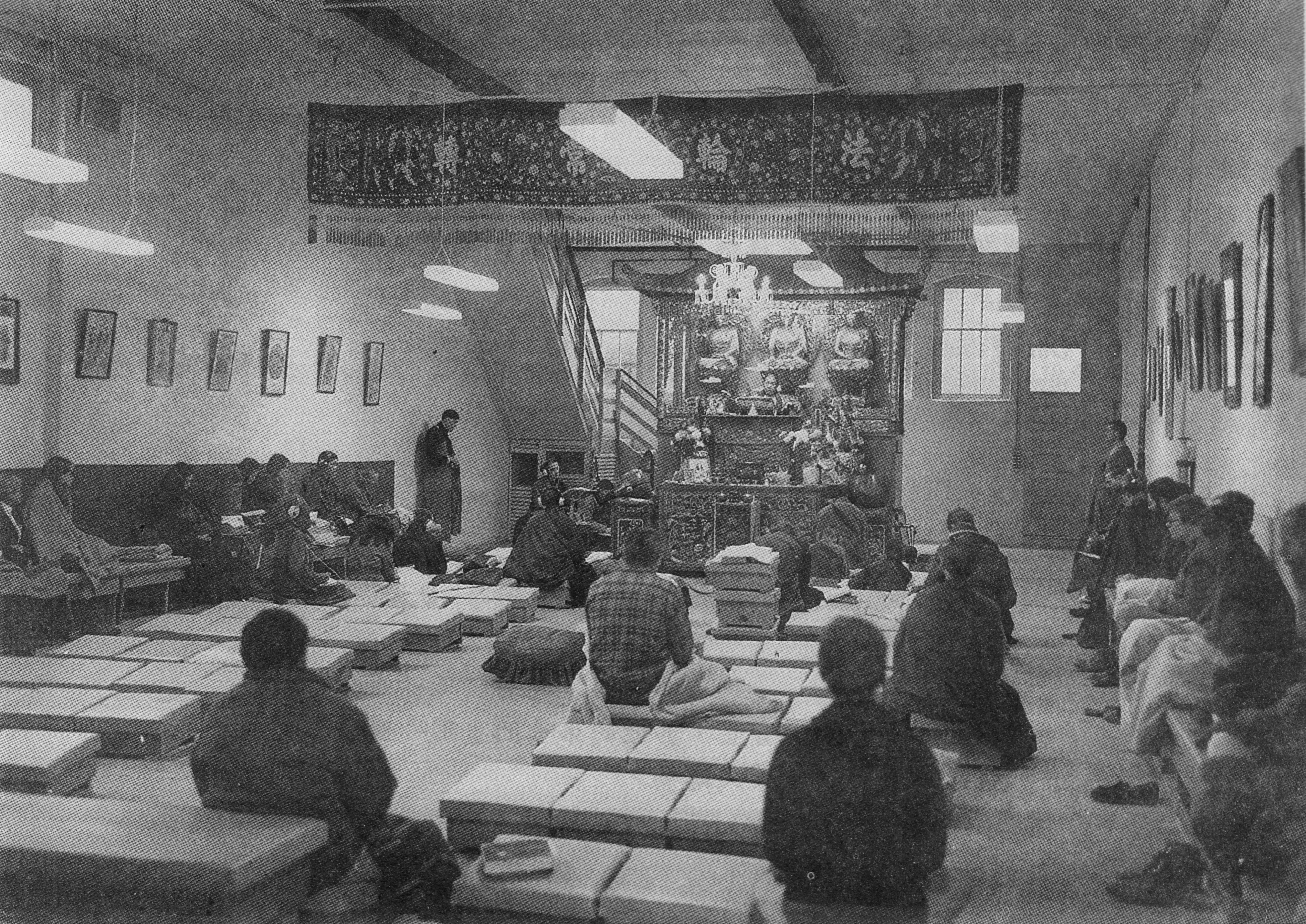|
七○年代 三藩市
|
|
1970’s San Francisco |
|
|
|
|
上人随缘度化众生,上人所做的每一件事,都是为了方便教化众生。有时,上人让别人为他做事,但实际上这些事未必是为他自己的需要而做的。
|
|
The Master accorded with conditions in order to teach beings. That means that whatever the Master did was an expedient aimed at helping an individual or a group. It also means that often the things the Master allowed others to do for him were not necessarily things that he liked having done for him.
|
|
|
|
|
例如,上人讲经时,弟子们喜欢为上人准备饮料。有一段时间,一位出家弟子很殷勤地为上人准备饮料,因此而不能做晚课。上人不喜欢这一点。起初上人不讲话,后来他开始抱怨装饮料的杯子是脏的。 |
|
One example is how his disciples liked to serve the Master a cup of liquid during his Sutra lecture. For a while, one of the monks was very involved in serving the Master that cup of liquid. But in order to prepare this drink for the Master, he would miss evening recitation. The Master didn’t like that, but at first he kept quiet. Later, he began to complain that the cup the monk served him was dirty.
|
|
|
|
|
当上人的抱怨没有结果时,上人就采用另一种方便法。一天晚上,上人喝水后,留了一点水在杯子里,然后就盯着这只杯子看。所有听课的人马上就都注意到了。上人不停地看着杯子,然后叫恒静走上讲台。上人告诉他杯子里有只虫,让恒静看了一下杯子里面,然后向大家说看到了什么。恒静看了以后,说:“我看到的是一些湿湿的尘毛。” |
|
Finally when that didn’t work, the Master decided to use an expedient. One evening he drank most of the cup of liquid and then began to peer intently into the almost-empty cup. His intense interest in his cup was soon noticed by everyone. Then, while still examining the contents of the cup, he called Bhikshu Heng Ching up to the high seat, announcing that his cup had a bug in it and instructing him to look in the cup and then tell everyone what he saw. Heng Ching stared into the cup and then reported,
“All I see is a bit of soggy dust fuzz in the cup.”
|
|
|
|
|
“那不是灰尘!是虫!”上人说:“传下去让每个人看看。” |
|
“That’s not dust! That’s an insect!” argued the Master.
“Pass the cup around for everyone to take a look!”
|
|
|
|
|
恒静依命而行。所有的弟子看到的,都只是一些湿透的灰色尘毛,在杯子底下。大家看完之后,杯子又送回上人的桌上。 |
|
Heng Ching did as he was told. Those disciples who peered into the cup also saw what looked like a bit of soggy gray fuzz in the bottom of the cup. After the cup went around the room, it was placed back on the Master’s table at the high seat.
|
|
|
|
|
上人继续讲《华严经》,每当英语翻译时,上人就又拿起杯子来看。然后又叫恒静上讲台,问:“看看这杯子,告诉我你看见什么。” |
|
The Master continued his lecture on the Avatamsaka Sutra, but whenever the translation was going on, he would pick up the cup and stare into it intently. Finally, he called Heng Ching back up again and said,
“Look in the cup now and tell me what you see.”
|
|
|
|
|
恒静看了一下杯子,惊讶地说:“怎么搞的,杯子里居然有一只虫!” |
|
Heng Ching did as he was asked and reacted with amazement.
“Why, there’s a perfectly-formed insect in the cup!”
|
|
|
|
|
“传下去!”上人命令。弟子们这次所看到的,的确是一只有着八只脚、多彩漂亮的昆虫。看起来不像是这个世间所有的生物。那天晚上大家都大开眼界,而那位很殷勤地为上人准备饮料的弟子,也得到了一个教训。上人事后解释说:“我不愿意成为你缺席晚课的因,我没有这份福报,我也不愿意负这因果的责任。” |
|
“Pass it around,” the Master commanded, and Heng Ching did. What the disciples saw this time was indeed an exquisite insect perched on eight legs shimmering with multicolored iridescence, looking unlike any creature belonging to this world. That night everyone saw what they had never seen before while the tea-serving monk was taught a lesson:
“I don’t want to be the cause of your missing evening recitation!” explained the Master.
“I don’t have such blessings, and I don’t want to have to bear the
cause and effect.”
|
